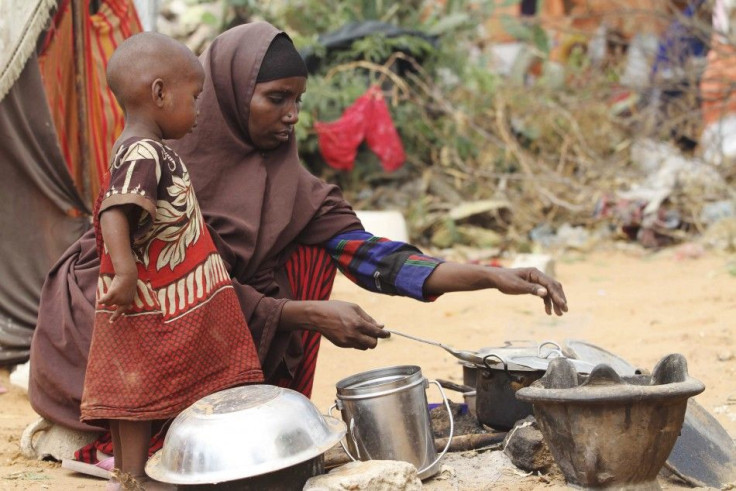Somalia Famine is 'Over,' But Millions Still in Danger

The famine is Somalia is officially over, the United Nations said on Friday.
The situation in Somalia was downgraded to a humanitarian emergency by the U.N. Food and Agricultural Organisation after strong rains broke the Horn of Africa's worst drought in 60 years.
But 2.3 million people -- more than 30 percent of the country's population -- are still facing a hunger crisis and assistance is needed for millions more in Somalia, a country where a near-total lack of government infrastructure and a violent Islamic militancy have exacerbated the ills of society.
Because famine is a technical term, even when its conditions are not met, people are still suffering from its consequences. The U.N. defines a famine as being when the rate of child malnutrition is above 30 percent, at least two in 10,000 people die per day, and where there is no access to food and water for some people.
“The years of conflict and poor rains have left millions of Somalis vulnerable. The mortality rates in southern Somalia are still among the highest in the world,” Mark Bowden, the U.N. Humanitarian Coordinator for Somalia, said in a statement.
At its peak, six regions in southern Somalia were touched by famine. Thousands of people left their home each day, some heading to Mogadishu in hopes of finding work but most cross the border to refugee camps in Kenya and Ethiopia. Close to four million people were facing starvation and another 13 million were at risk and needed required immediate assistance.
Additionally, half a million children were malnourished, close to two million people were displaced and up to 100,000 died.
While things are better for the time being, there is still fear that the famine will return.
Millions of people still need food, clean water, shelter and other assistance to survive and the situation is expected to deteriorate in May, Bowden stated.
The U.N. official's dire forecast is again made worst by al-Shabab, Somalia's al-Qaeda-linked rebel group. Al-Shabab controls the areas that were most affected by famine and on Friday the group said it would block the International Committee of the Red Cross from operating in its territory.
Although they deny it, the militants have repeatedly block humanitarian organizations and hijacked aid shipments.
However, some aid did make it through, albeit slowly, and international assistance is being credited as a contributing factor for the improvement in the country. Donations of equipment to farmers helped during the growing season and food aid in refugee camps alleviated some hunger.
We were able to halt the downward spiral into starvation for 500,000 of the people who were most at risk last year, said Bowden, who added that despite significant progress achieved in pushing back the famine … 4 million people are still in urgent need of aid in the country, where the famine continues for up to 250,000 Somalis.
© Copyright IBTimes 2025. All rights reserved.





















